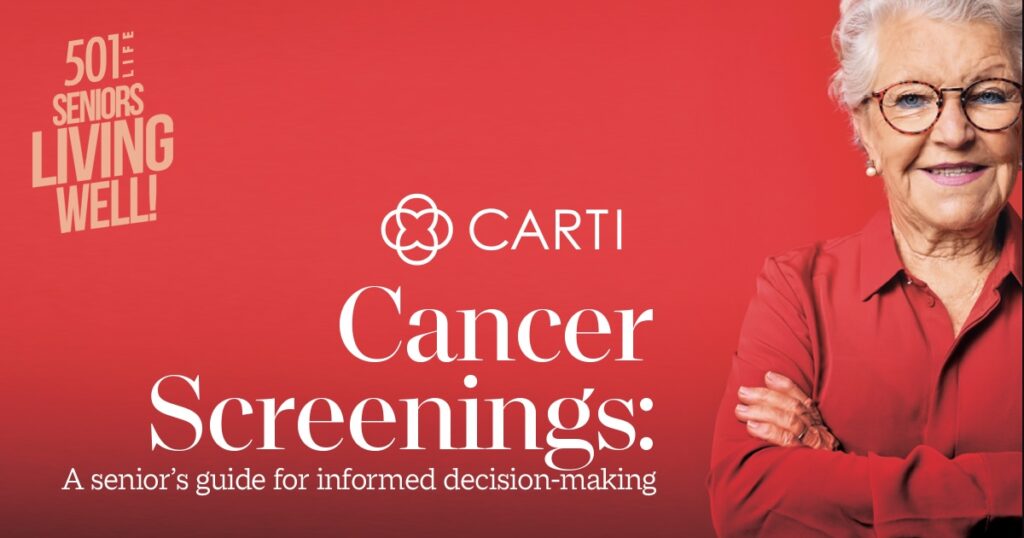01 Feb 2024 Cancer Screenings: A senior’s guide for informed decision-making
Starting with our first pediatrician visit, seeing a doctor for periodic check-ins becomes routine. From eye exams to blood draws and urine samples, receiving screenings allows us to catch potentially life-altering diseases sooner when treatment is known to be more effective. Early detection enables us to make proactive decisions to protect our health and quality of life.

But does the need for screenings evolve as we age, especially for serious diseases like cancer that may end up requiring more invasive procedures or management? For seniors accustomed to undergoing regular testing, it begs the question, “How can we determine what cancer screenings we may—or may not—need to receive?”
Health experts overwhelmingly agree that the early detection of cancer is critical. The American Cancer Society (ACS), our nation’s leading “cancer-fighting organization,” states that “regular screenings give the best chance of finding cancer early when it’s small and before it’s spread.” Likewise, Harvard Medical School (HMS) confirms that “early detection and treatment can be lifesaving,” including for more curable diseases like early-stage breast cancer. However, HMS cautions that these benefits do not necessarily apply to every health issue or every age group.
CARTI, a not-for-profit cancer care provider with 18 locations across the state and Arkansas’s first cancer-dedicated surgery center, echoes this sentiment. It says the first step for seniors is to discuss their need for screening with their health care providers. CARTI is a firm believer in early detection and treatment. And it’s understandable why—they witness the lifesaving benefits for their patients every day. Equally important, CARTI’s team is focused on ensuring all patients feel equipped, empowered and supported in making informed health care decisions.
If seniors are uncertain whether they may be eligible for cancer screenings, they can visit screening. CARTI.com or call 501.906.4470. CARTI’s team of experts is available to help seniors weigh the potential considerations, including their overall health, pre-existing comorbidities or other risk factors, such as a previous cancer diagnosis, abnormal screening result or a known genetic predisposition. For more information about CARTI and its cancer screenings, please visit CARTI.com.
For screenings, CARTI says seniors’ conversations with their physicians should center on the potential benefits, limitations or downsides of testing. CARTI points to the American Cancer Society’s recommendations for breast, lung and prostate cancer as an affirmation of the need for ongoing effective patient-physician communication.
Breast cancer:
Women 55 and older of average risk should get mammograms at least every two years, continuing the practice as long as they are in good health and expected to live 10 or more years.
Lung cancer:
Individuals 50-80 who are current or former smokers and have at least a 20-pack-year history of smoking should receive yearly low-dose CT scans. Patients should not be screened if they have serious health issues or would not receive treatment.
Prostate cancer:
Men 50 and older at average risk should make an individual decision about screening after thoroughly discussing the pros and cons with their doctors.











